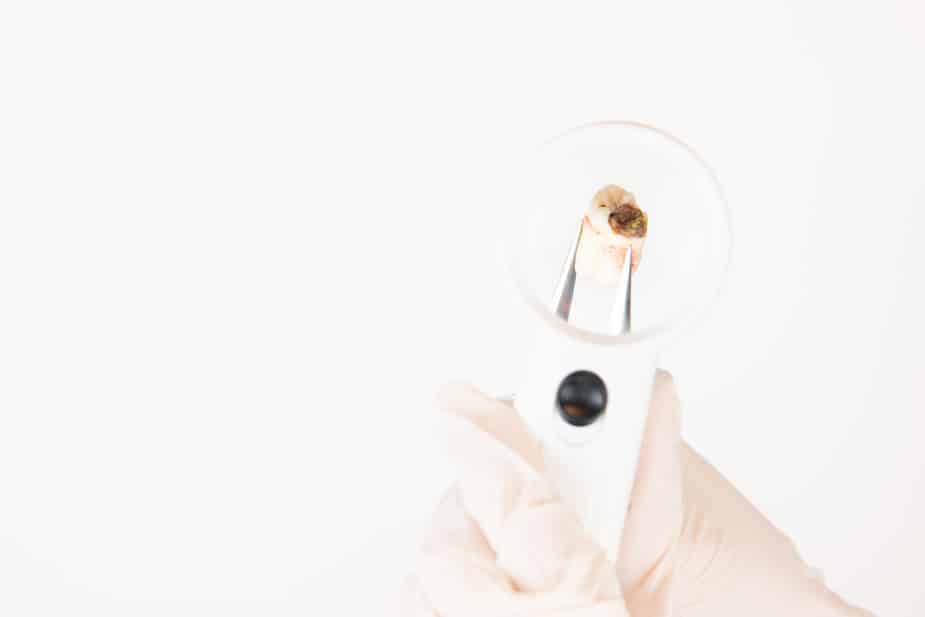What Does Sugar Do to Dentures?

As we all know, too much sugar can have negative impacts on our overall health. It can increase the risk of obesity, diabetes, heart disease, kidney disease, and much more.
Consuming too much sugar also poses a significant risk to our oral health. Our mouths are full of bacteria, many of which are necessary for a healthy environment. However, many of these bacteria are harmful and cause oral health problems including bad breath, cavities, gingivitis, and periodontal disease if left untreated.
These bacteria love sugar. They feed on it and use the energy to create acids that destroy enamel — the outermost layer protecting your teeth.
Failing to clean your teeth allows these bacteria to build up and harden into colonies known as plaque. Plaque can be extremely difficult to remove on your own, and often requires specialized tools and the expertise of your dentist.
Dentures aren’t too different from natural teeth in these respects.Your dentures should be thoroughly cleaned at least once a day to minimize the risk of further complications down the road.
Partial Dentures
If you’re a partial denture user (meaning you still have some of your natural teeth), your dentures rely on the support provided by your remaining teeth.
Consuming too much sugar or failing to maintain good oral hygiene habits can compromise your remaining teeth — which means more extractions.
Without the support of your natural teeth, partial dentures become unstable. Unstable dentures may cause pain, discomfort, and shifting teeth.
Be sure to give your natural teeth a proper cleaning at least once a day (or more!) for reduce the risk of cavities, infection, and further extractions.
Complete, Complex, Lower-Suction, & Dentures Over Implants
If you’ve had all of your teeth extracted and currently rely on complete, complete, complex, lower-suction, or dentures over implants, it’s still important to give your dentures and gums a thorough cleaning everyday.
Although all the natural teeth may be gone, the bacteria are not. Dentures are porous, meaning they contain thousands of tiny spaces — perfect places for bacteria to hide a proliferate.
Some denture users experience bad breath as a result of improper cleaning practices. In more severe cases, infections in the gums and jaw can occur. These infections cause inflammation which significantly accelerates the shrinking of jaw bone.
Shrinkage in the jaw is a completely natural and expected outcome of tooth loss. However, it can be slowed down with proper oral hygiene and visits with your denturist.
A few good habits can significantly increase the life of your dentures and make the overall experience much more comfortable.
Reducing Sugar & Good Oral Hygiene Habits
We all crave something sweet from time to time and you shouldn’t feel guilty for indulging every once in a while. However, choosing your treats wisely can make all the difference.
Try to avoid hard or sticky candies. These treats tend to get lodged in the denture easily and can be difficult to clean — giving those bacteria a hearty meal to feed upon.
Instead, try to get your sugar fix through fruits or sweeter vegetables. Fruits and veggies provide a wealth of beneficial vitamins and minerals with a reduced risk of getting stuck to your dentures.
Lastly, and most importantly, clean your dentures at least once a day. Even with moderate sugar consumption, there’s no substitute for proper oral hygiene. Gently brush your teeth and gums with a soft bristled toothbrush and be sure to soak your dentures overnight.
These practices can reduce the risk of bacterial buildups and oral health complications.
Do you have more questions about getting your sugar fix? Contact The Denture & Implant Centre for personalized advice. Schedule an appointment today!
